I love Jennifer Aniston. If I could look like anyone, it would be Jennifer Aniston. She has the most beautiful skin.
This, almost verbatim, is what one of my students said to me a couple semesters ago.
And I dig Jennifer Aniston. Have dug her since Friends and think she’s adorable and funny and well just darn likable. So what I did next wasn’t a conspiracy against Jennifer Aniston, I promise. It was simply a desire to create a more realistic worldview for my students. Because here is what I know. You don’t get to your forties, after a couple decades spent smoking and sunning, without life showing up a bit on your face. That’s not a criticism- it’s just real. I know. I look at my face in the mirror every day, and I can tell that I didn’t wear sunscreen for awhile.
So, I went on a hunt. For a picture of J. Aniston that showed what she might look like without make up or photoshop. And here’s what I found:
An absolutely adorable Aniston in that actual photograph on the left. And then the final image that was presented of Aniston from that photo shoot. Aniston polished, photoshopped, brightened.
And if you think Aniston’s the only one who gets the photoshop treatment, you are sorely mistaken. The question isn’t who gets the photoshop treatment. It’s who doesn’t.
To prove my point, here are five more manipulated images that were put out for our consumption. Treat this challenge like one of those “what’s wrong in this picture” puzzles in the newspaper.
And lest you think that photoshopping is new and only in women’s fashion magazines: nope. Here’s a 1989 manipulated TV Guide cover. Oprah’s face, Ann Margaret’s body.
And it’s not just women who get the photoshop treatment. Here’s Clive Owen with all of the life sucked out of him.
When we discuss media literacy, I stress to my students how important it is to understand that everything we look at has been manipulated in some way. We are all being sold a bag of goods- and it has, unfortunately, been made our job to be as discerning and literate as possible in order to avoid some, most, all of the damage that buying into the images we’re sold can do. So, arm yourself with this knowledge and never, ever look at an image for its surface again.
Did you know that photos were so dramatically photoshopped? Can you look at images in a magazine without punishing yourself? Do you have a favorite photoshop discovery?
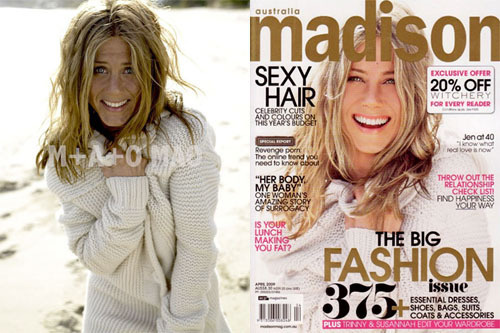
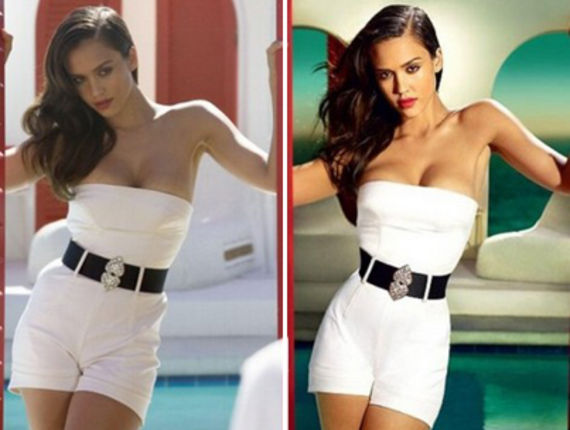
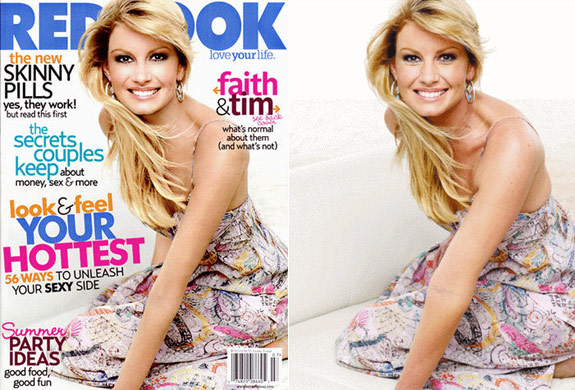
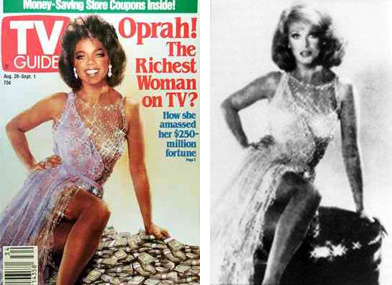
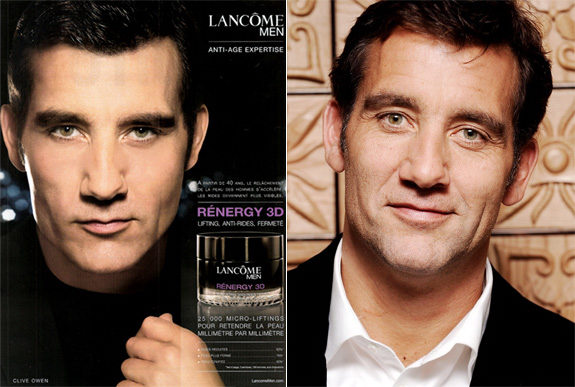



Even that last photo of Clive Owen (the one where he doesn’t look like a vampire) is probably ‘shopped. The wrinkles haven’t been taken away, but they’ve been smoothed.
I think one of my bigger aha moments, in terms of the media, was that cover shoot Oprah did a “behind the scenes of” in O magazine, years ago. As an actor I already knew about stage makeup, but professional makeup artists/ hair people take it to a level I had never even thought about before! (And also a level that feels really, really gross on one’s skin.)
As satisfying it must be for actors to become famous, it must be a lifetime curse for people to walk up and say “Didn’t you used to be?” since not only have they been Photoshopped, but they have inevitably aged since the last performance.
It’s hard enough being a school teacher where kids want to know if you knew personally the historical figures your seem to know so much about.
This is one of the reasons I stopped buying mags. (now i just flip threw them in the Drs office or a long check-out line) The other was that every mag has 3-7 diff articles on how to lose weight.. But then they photoshop every pic in it.. I got to the point where enough was enough.. So now I save myself some money and the aggravation of having to tell that voice in the back on my mind to “SHUT UP!” bc Ill never be able to live up to that fake image. If those actresses dont even look like that why should I?
;-D